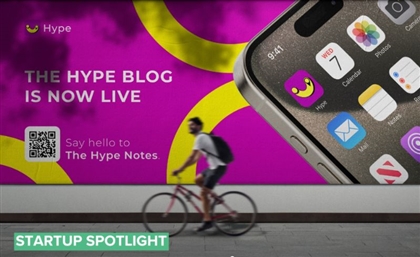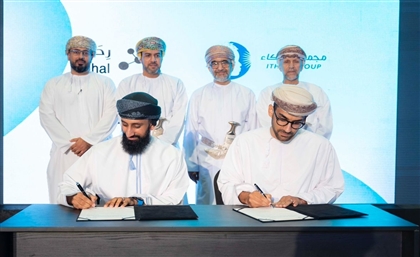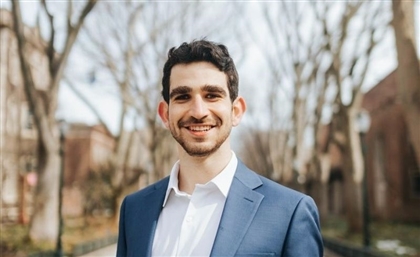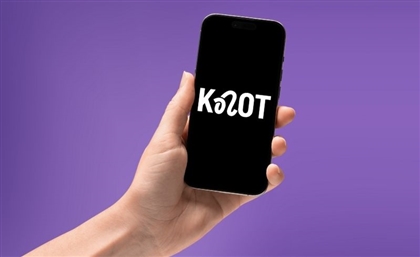How This Egyptian AI Pioneer Grabbed Microsoft's Attention - and a $3.5 Million Investment
When AUC graduate Mohamed AlTantawy created Agolo, he didn't think the startup would become the world leader in machine summarisation software and snag an investment from Microsoft. In a talk with Charlotte Swan, the New York-based entrepreneur reveals how he caught the tech giant's attention.
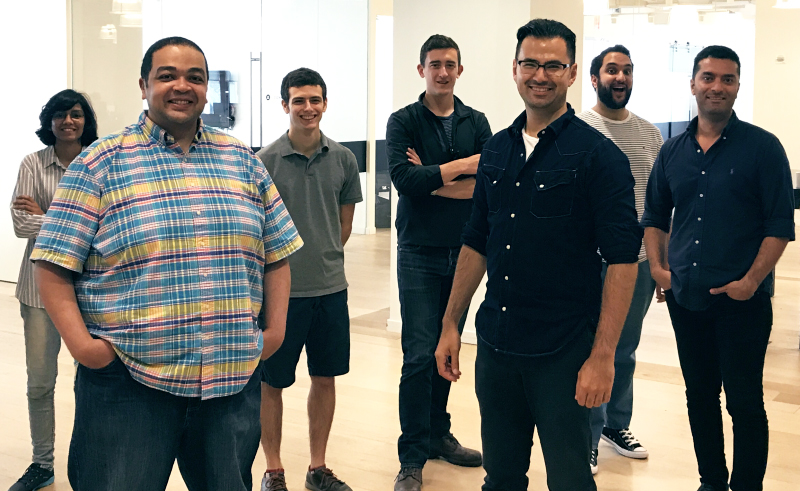
In early May, New York-based tech startup Agolo completed its first seed round of funding, pulling in over $3.5 million in investments from Microsoft Ventures and CRV, with participation from Point72 Ventures and Franklin Templeton. But how did this entrepreneur go from Egypt to snagging such overwhelming corporate interest in the heart of the Big Apple? An interview with Mohamed AlTantawy - Egyptian, AUC graduate, and co-founder of Agolo - reveals how the startup progressed from ideation to actualization.
AlTantawy's AI-powered startup provides machine summarisation software that gathers documents from around the web and breaks down key points for the user, eliminating the need to spend hours sifting through information to find the most important details, and works through natural language processing technology. “This is the area of computer science where algorithms try to make sense of human language," the entrepreneur explains. "Any piece of software that sits between a machine and human language is in the natural language processing field.” So applications acting as bridges between voice and text (such as virtual assistants like Siri, Cortana, and Alexa) use natural language processing software. Non-voice based applications that parse human language are also part of the field. Who hasn’t cursed autocorrect at one time or another?
How can a computer summarise? It’s already a very hard problem for humans to summarise. It intrigued me very much.
It was during his senior undergrad year in Cairo that AlTantawy, now 34, discovered his passion, a fascination that would ignite his career in natural language processing technology. During a 2005 seminar on machine learning from one of his favourite professors, he was introduced to the concept of machine summarisation. His curiosity was piqued. “How can a computer summarise? It’s already a very hard problem for humans to summarise. It intrigued me very much,” he muses. As an undergrad, he hadn’t taken any artificial intelligence or machine learning courses. But the spark was there, and he wanted to learn more. AlTantawy noticed that every single paper he cited during his master’s research came from at least one author at Columbia University in New York City, so he decided to apply there for his doctoral research. He was accepted and in 2008, the young man left Egypt to continue his education abroad.
AlTantawy started Agolo with his classmate Sage Wohns, also 34 years old, whom he met at Columbia in 2012, four years into his Ph.D candidacy. A computer science business school mixer connected the two students, who had complementary interests in business, artificial intelligence, and natural language processing. They shared the desire to use technology to solve real-world problems. Somehow combining AI and NLP technologies was a shared goal for the pair, but they didn’t begin with a firm idea or business plan. At first, the initial prototype of their collaboration was a program to help users curate their Twitter feeds to specific interests using artificial intelligence. Columbia University was the pair’s first investor, and it was after they received their first cheque that the two realised they had a marketable idea and decided to start a company. The investment from Columbia provided the affirmation the pair needed that their ideas provided a viable career path to them. “Columbia thought what we were doing was useful and important, and they wrote the first cheque for us to go start a company,” AlTantawy confirms.
Did the pair ever imagine that their little Twitterbot would evolve into a business receiving multimillion dollar investments from major corporations? “Everyone was very complimentary about the technology and how it worked,” the entrepreneur explains, “but we definitely knew that it wasn’t the right product; we could do something bigger, but we didn’t know what that thing was. We knew that we were limiting ourselves, but we didn’t know where we should go or what we should try, and it took us time to basically find that bigger thing.” Finding a good product-market fit was essential to the continued success of their venture, and the pair continued doggedly in their search for the right niche for their software innovation. “We had a lot of experiments and trial and error. I think we knew that we had good technology, but we didn’t have a good product back then,” continues AlTantawy. His commentary is a valuable reminder to entrepreneurs that a good idea isn’t always enough, and that perseverance and openness to change are crucial to developing businesses.
Agolo’s relationship with Microsoft began early on, about three years ago. AlTantawy had just met a handful of the engineers pioneering cloud machine learning platforms and wanted to stay involved with the development of the budding discipline. Even though the tech at the time was too primitive for Agolo, AlTantawy and Wohns saw its potential and decided to start developing on Microsoft’s Azure cloud platform.
By getting involved and tailoring their products to Microsoft before there was a real market for them, Agolo established themselves as Microsoft’s go-to developers.
By getting involved and tailoring their products to Microsoft before there was a real market for them, Agolo established themselves as Microsoft’s go-to developers for natural language processing software. By the time Microsoft decided to invest in the field, the industry giant had an obvious choice in the startup, as they had by that point established a mutual long-term working relationship with one another and their products. Agolo was invited to participate in the Microsoft Acceleration Program and spent four months of intensive training at the Microsoft headquarters near Seattle, Washington. Those four months were a valuable educational experience for AlTantawy and Wohns, who were put through a variety of business and technical exercises and tests, and practiced pitching to high-profile executives and investors.
Not long after their experience in the Microsoft Acceleration Program, the Agolo founders began a dialogue with Microsoft Ventures, the tech enterprise’s corporate venture fund. By the time the startup closed its first seed round of funding in early May 2017, they had raised $3.5 million in investments from Microsoft Ventures, CRV, Point72 Ventures and Franklin Templeton. AlTantawy again emphasizes that Agolo’s success has a lot to do with relentlessly pursuing a sensible product-market fit, explaining that “as a technologist you can be sidetracked by saying ‘oh, this would be cool!’ but [you need to ask] who’s going to use it, who’s going to pay for it and how are they going to use it, to be able to start a good business.” Agolo has come a long way from its humble beginnings as a chatbot on Twitter, which started as a good idea that didn’t make a good business plan. “We had focused on the technology and how cool it was, and what could be the future for something like it, and I think it was very promising, but there wasn’t anyone willing to pay for it back then,” continues AlTantawy. “There’s no formula for it – it’s all trial and error.”
You need to ask who’s going to use it, who’s going to pay for it and how are they going to use it, to be able to start a good business.
In February 2017, the startup opened new offices in Cairo. The choice was a given for AlTantawy, who grew up in Egypt. “I am from Egypt; I am from Cairo; I know that there is great talent there, why go start somewhere else?” he asks rhetorically. He was surprised by the skepticism from his friends back home, who told him that all of Egypt’s talent, like him, had already left or was trying to leave the country. “This is true; I did it myself almost 10 years earlier for no reason, as Egypt back then was very stable and promising, but I wanted to do my studies” he continues. Still, he pushed ahead with the Cairo office and reports that he has hired some of the “best talent he has ever worked with.” The company hopes to double their staff in Cairo and New York by the end of 2017.
As Agolo matures, will it become possible for the AI software to become better at summarisation than humans with their critical thinking abilities? AlTantawy asserts that regarding speed and coverage, it’s already there. “A fast thinker might take 15 minutes to summarise a mid-sized news document, but machines do that in seconds. We also do multi-level summarisations… we can summarise 40 news documents together, but humans can’t scale to that extent,” he explains. The company’s push now is for quality in coherence and fluency as it generates its summaries. Asked if Agolo has ever been tricked by “fake news” or hoaxes before, AlTantawy says that right now, the summarisation is only as good as its sources, so it’ll generate summaries from wherever the user specifies it wants data. It seems that for now, the critical thinking aspect will still rest on the shoulders of real humans.
In 2025, 50% of search queries will come from voice enabled devices such as Alexa, Cortana, and Siri.
Like any tech innovator hoping to secure a lasting position in the industry, AlTantawy is always trying to stay two steps ahead. When asked where he sees Agolo five years from now, he responds with a knowledge bomb that alters my perception of the internet’s future as a whole. “In the year 2025, 50 percent of search queries will come from voice enabled devices such as Alexa, Cortana, Siri, and so on. This is huge. For traditional search engines like Google, this is scary,” the entrepreneur reports. This means that people won’t be choosing what to read from a search engine results page – instead, the information will be chosen and recited to them by a virtual assistant. As a leader in machine summarisation, Agolo has potential to become a major influencer on the future face of the internet. Want to know more? Just ask Cortana.
Main image: The Agolo team, photo courtesy Mohamed AlTantawy.
- Previous Article Bassita: Click Funding for a Better Egypt
- Next Article Giga Works - A Story of the Middle East’s First Virtual Reality Filming Startup
Trending This Month
-
Jan 19, 2026



